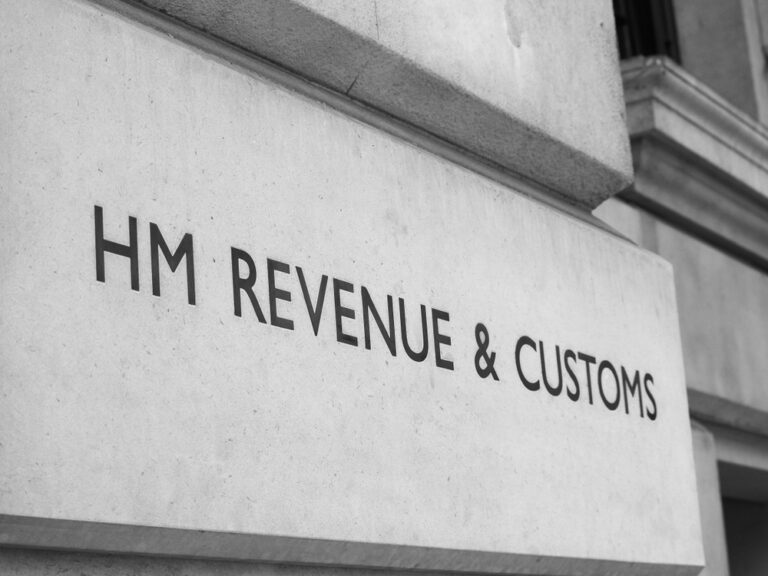Tax Investigation and Fraud
Tax investigations
HM Revenue & Customs now has very wide ranging powers to investigate your personal and business affairs at will. In some circumstances, they are entitled to enter premises without notice to seek documents relevant to your tax affairs and they have draconian new penalty regimes established to maximise the amount of money that they can extract from you if they decide that you have deliberately underpaid your dues.
As if running your own business was not stressful enough, you could now find yourself subject to in depth investigation into almost any aspect of your business or personal affairs, including;
- Income Tax
- National Insurance
- Corporation Tax
- Benefits in Kind
- PAYE
- Capital Gains Tax
- Value Added Tax
- Inheritance Tax


Cobham Murphy Xeinadin Group has established a justifiable reputation throughout the United Kingdom and Europe for being skilful, hard but fair negotiators with all Government Agencies, particularly HMRC. We understand the concerns and needs of people who are subject to investigation and act swiftly to take away these worries, especially in the more serious cases being undertaken by HMRC Specialist Investigation offices.
John Green joined Cobham Murphy Xeinadin Group after 23 years with the Inland Revenue where he was responsible for the investigation of serious fraud and anti-avoidance schemes, often involving very large businesses and international tax issues. If you find yourself subject to HMRC investigation of any kind the best protection possible for you is to have John and his team at your side.
John’s team of ex HMRC senior investigators from specialist high-level offices have a reputation for achieving cost effective pragmatic settlements in investigations conducted by major Government departments. In addition to dealing with Civil Investigations, they have considerable experience dealing with people subject to criminal prosecution for offences relating to fraud as well as those charged with tax and VAT offences. They are also the first in the country to develop strategies to help people facing applications for excessive levels of confiscation under the Proceeds of Crime Act and have had considerable success redressing the balance for people subject to the draconian demands of that statute.
Code of practice 9 investigations
Contract Disclosure Facility
The Contract Disclosure Facility (CDF) signals the opening of a Code of Practice 9 investigation and is initiated by an invitation to make an Outline Disclosure of any irregularities in your tax affairs, including the tax affairs of any company, partnership, trust or other entity that you may have been involved with. You are given sixty days to make your Disclosures. You have the option to reject the CDF opportunity but, if you do so, H M Revenue & Custom (HMR&C) will begin their own investigation with a view to undertaking a criminal prosecution.
If you accept the CDF, the Disclosure that you make is called your Outline Disclosure. Specialist advice needs to be taken about the form and content of any Outline Disclosure as it will determine the course of the remainder of the investigation.
A Code of Practice 9 (COP 9) investigation is the most serious challenge that you can receive from HMR&C, other than a criminal prosecution.
They are conducted by well-trained Senior Officers who work at the Fraud Investigation Service (FIS) offices around the country and who investigate suspected serious fraud.
They need to be dealt with by experienced specialist firms, such as Cobham Murphy Limited, in order to ensure the best possible outcome.
COP 9 investigations are often cases which have been considered by HMR&C for criminal prosecution but where perhaps there was insufficient evidence, or maybe some other mitigating factors.
The COP 9 challenge is that you will not be prosecuted in respect of any offence that you Disclose in full to HMR&C but if you fail to disclose something, or only make a partial Disclosure, you will be considered again for prosecution.
COP 9 is offered providing the opportunity to make a Full Disclosure of any loss of tax resulting from deliberate or non-deliberate conduct. An assurance is given that a criminal investigation will not begin into any of the deliberate conducts disclosed if a Full Disclosure is made.
However, an investigation with a view to prosecution will be opened if false or misleading information is provided, for example deliberately under-stating the extent of the tax evaded.
Opening Procedure
The investigation usually begins with a written challenge from an FIS Investigator who will say that he/she has reason to believe that you have been involved in suspected serious tax fraud.
COP 9 investigations are dealt with under a protocol known as the Contract Disclosure Facility. This protocol gives you the opportunity to make a complete Disclosure of any irregularity in your tax affairs, with the assurance that if a complete Disclosure is made, you will not be criminally prosecuted in respect of those irregularities. However, the warning is given at the outset that a prosecution will ensue if the Disclosure is not complete, or if false or misleading information is provided to HMR&C during the investigation.
The parameters under which the CDF contract operates are strictly defined and must be adhered to throughout. The Investigators will demand to interview you and if you do not attend they will conclude that you have rejected their CDF offer and may subject you to a criminal enquiry, significantly higher civil financial penalties and the potential publication of your details.
Following the interview they will expect you to commission the preparation of a Formal Report which will identify all of the irregularities in your tax affairs and quantify the consequential unpaid taxes and other duties. As part of the Report, and subsequent to it, you will be expected to sign a series of Formal Statements about your bank and credit card accounts, about your assets and liabilities and to certify that you have made a complete Disclosure of all irregularities. All of those documents carry a warning that if they are not correct, you could be prosecuted.
Time Frame
The time frame for a CDF investigation can vary but, on average, it will be about three months after the initial challenge when the interview takes place and about six months after that the Report will have to be lodged with HMR&C. When the Investigators have interrogated the Report, they have an unlimited amount of time to conclude their enquires but it usually takes about a further six months. Some are slightly quicker but many go on for an extended period of time.
Overview
The CDF process is the highest level of civil investigation conducted in the UK and must always be taken very seriously. It is unlikely that a local accountancy firm will have the experience or expertise to satisfactorily defend a client’s position from the HMR&C attack and a specialist firm such as Cobham Murphy Limited should be instructed to ensure the best possible outcome.


HM Revenue & Customs
HMRC have become significantly more aggressive in their defence and collection of tax. An increasing number of powers are being given to HMRC with the volume of legislation increasing year on year. It is therefore becoming more and more important to ensure that you receive the good advice.
At Cobham Murphy Xeinadin Group we advise on the following:
- Investigations – We have some of the most experienced ex-revenue inspectors found outside the “Big-Four” and regularly provide help and assistance with the clients of other firms of accountants and solicitors when they are facing a challenge from HMRC.
- Mergers, Acquisitions and Disposals – It is extremely important to ensure when buying or selling company shares or trading assets to obtain tax advice on the transaction as early as possible.
- Tax Planning – It is our philosophy to implement plans to reduce the tax compliance burden from an annual perspective in relation to Income Tax or Corporate Tax, as well as review long term plans with respect to Capital Gains Tax and Inheritance Tax.
- We also provide specialist help with regard to the indirect taxes of VAT and stamp duty.
POCA civil proceedings
The Proceeds of Crime Act 2002 (POCA) was introduced to ensure that serious criminals could not benefit from the crimes that they had committed. This is a very laudable objective but the legislation can be Draconian for minor criminals and can lead to very unjust outcomes.
Many criminal lawyers seem reluctant to challenge the system and CM accountants’ Forensic Investigation Team has seen many examples where Confiscations have been sought in huge sums of money when in truth there were no proceeds of the crime or a very minor amount of money is involved.
If someone has been found guilty of a criminal offence they have to prove the source of money used to;
- Acquire any assets or savings held 6 years before the offence
- Acquire any assets or savings or used to spend in the 6 years prior to the offence
- Acquire any assets or savings or used to spend since the offence
If they cannot prove all of these things then the Crown is entitled to assume that they are from the proceeds of crime and confiscate an amount equal to them.
We began defending individuals who were subject to excessive confiscation applications as soon as the new legislation started to bite and now have a considerable amount of experience counteracting the excessive demands produced by police financial investigators.
Anyone subject to a POCA Application should ensure that their solicitor engages an experienced firm to produce a Forensic Report in support of their case.
Recently we have completed Reports in case where;
- The police investigator sought almost £500,000, our report reduced that to £13,000
- The police investigator declared benefits of criminal activity of more than £6,000,000 and we concluded that there had been no proceeds of crime whatsoever.
In addition to success defending Applications for Confiscation, we have also acted in mainstream criminal cases where the evidence against the defendant was dubious and secured outcomes for people who were at risk of prison but who had committed no offence.
